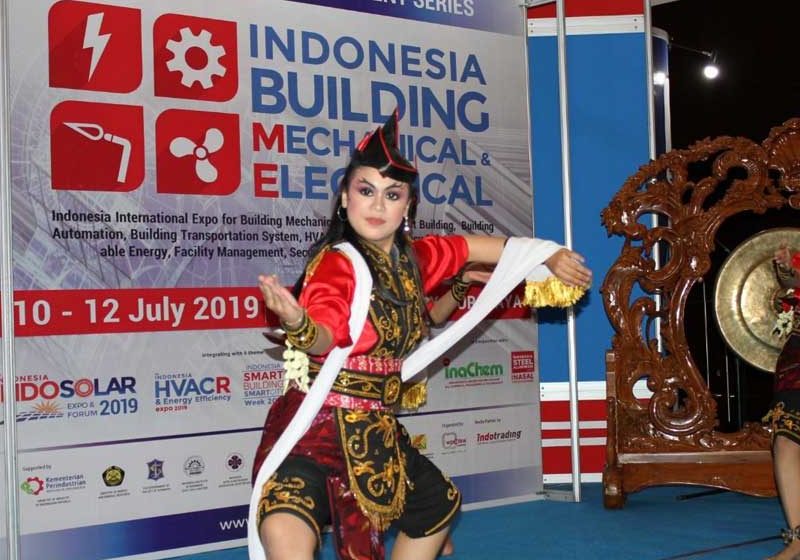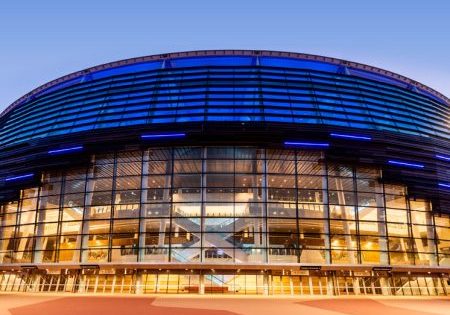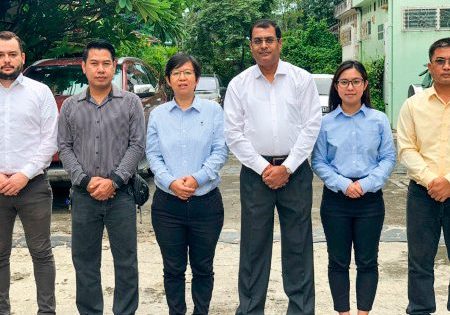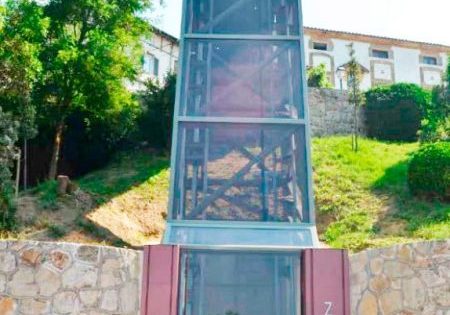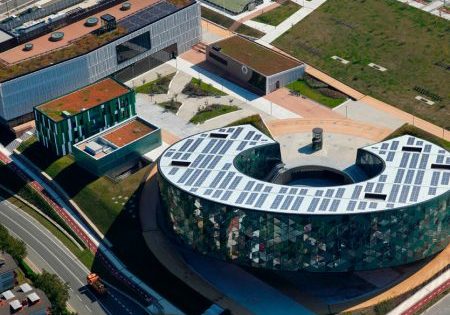Journey to Johannesburg
Nov 1, 2019
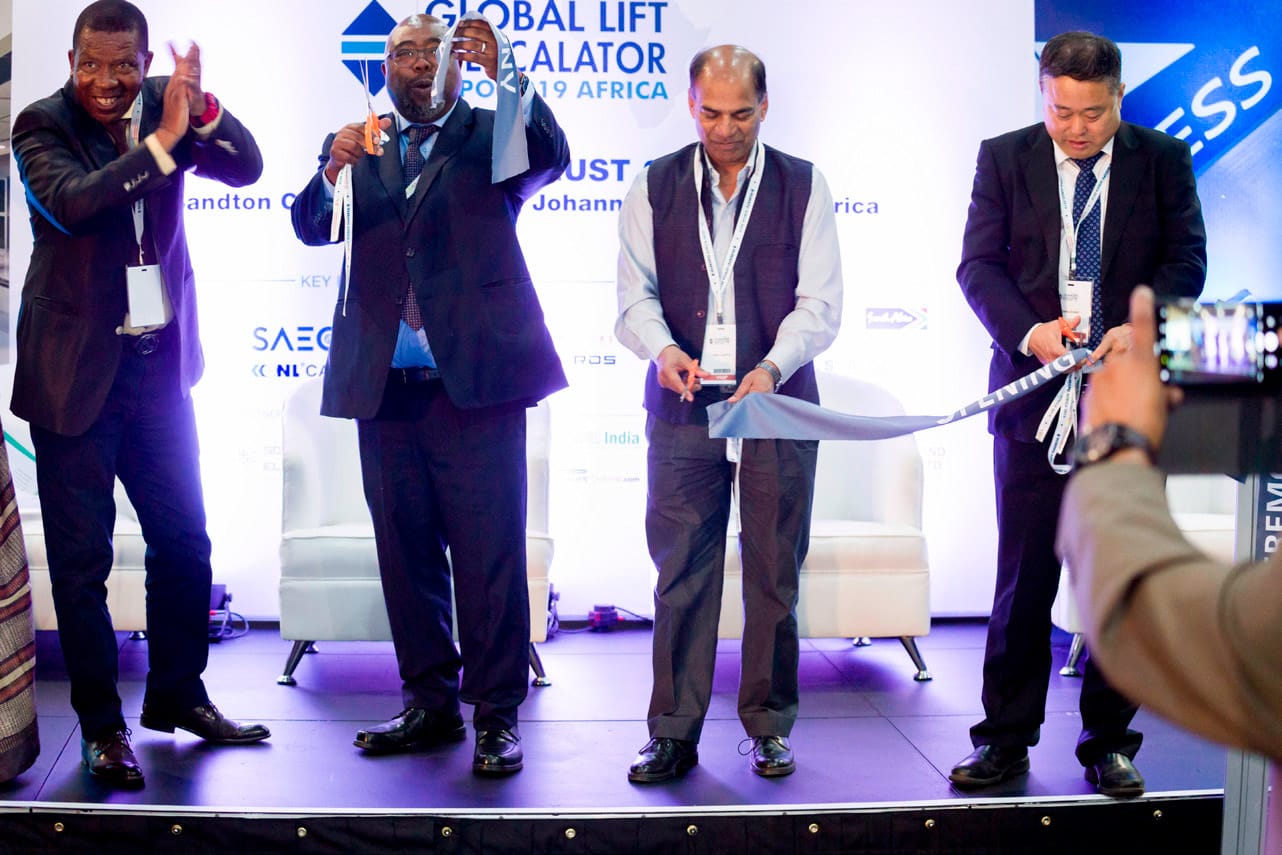
Inaugural GLE Expo Africa creates success to build on.
The inaugural Global Lift & Escalator (GLE) Expo 2019 Africa, organized by Virgo Communications & Exhibitions, Ltd., was held on August 27-29 at the Sandton Convention Centre in Johannesburg, South Africa, attracting various international vertical-transportation (VT) companies, government officials, experts and property developers eager to explore the lift and escalator solutions available in the market, or to take in an overview of the industry in South Africa and across the continent.
Considering this was the first exclusive lift and escalator industry event in sub-Saharan Africa, the turnout was good, with more than 63 exhibitors from Turkey, Germany, China and South Africa, among other markets. About 1,400 people attended the three-day event.
“We were extremely happy with the event and the outcome,” said Anitha Raghunath, director, Virgo Communications & Exhibitions Ltd. “All exhibitors were satisfied with the quality of visitors and the overall business generated, and they spoke very highly of the event and arrangements, too.”
Some of the exhibitors who spoke with ELEVATOR WORLD were optimistic the event was an eye-opener for the manufacturers and suppliers of VT components and services, and that it provided a solid forum for them to network and interact with commercial and residential property developers keen on acquiring new or replacement quality lifts and escalators.
“We are here to look for reliable partners for long-term operations in the region and also explore the South African and African market,” said Vivian Zhang from the overseas sales office of the Sino-German joint venture Kasper Elevator Co., Ltd.
For Aayesha Rakim of Durban, South Africa-based Escalators for Africa, the expo was more of a launching pad for her company:
“We are new in the market, but we have recently signed an agreement with a Chinese supplier of escalators, and we will expand our supply and even installation operations in South Africa.”
Her company also designs, installs, services and maintains all types of escalators.
Germany-based Schaefer GmbH’s international sales representative Felix Sango said the expo provided an opportunity for his company, which has been active in a number of African countries, to get to know the market better and learn how Schaefer products can best serve the region’s current market needs.
“The current clients we have in the African market are those who approached us, but, now, we are out to reach prospective customers and demonstrate how Schaefer products can provide solutions to their VT requirements,” Sango said.
A three-day program, which ran alongside the exhibition, was loaded with expert presentations and a detailed overview of the South African VT industry, which is the largest in sub-Saharan Africa.
Several international and local speakers spiced the event with powerful presentations touching on the South African lift and escalator market and how it fits in with the international VT space. The topics ranged from women in South Africa’s lift industry, to the role of European lift standards in promoting innovation.
South Africa government officials, led by Minister of Employment and Labour Thulas Nxesi, gave an account of the current disposition of the country’s lifts and escalators, noting, “A lot needs to be done to ensure the safety and reliability of lifts and escalators through desired standards.”
Nxesi gave an opening address that focused on the existing market potential of the South African VT market, and why the expo should be regarded as an opportunity to explore this market potential. He continued:
“GLE Expo 2019 Africa is befitting South Africa, as it creates an opportunity for global players to explore the African market, engage prospective buyers, network with regional players and expand business in the continent. The Department of Employment and Labour supports this expo, since we believe it will boost manufacturing of lifts and escalators in South Africa and support our priority of economic transformation and job creation.”
The minister said South Africa’s Department of Public Works is responsible for more than 90 buildings, but:
“We have been found wanting as a government in this area, especially when it comes to our lifts and escalators, which is a very critical area. In order for the lifts and escalators to serve us properly, effectively and safely, they require periodic planned maintenance and, hence, we must ensure that we appoint competent people to these roles and responsibilities.” According to Jacob Malatse, director of Electrical Engineering at the Department of Employment and Labour, this year’s expo was “an opportunity to make people start to see what is happening in the lift and escalator industry in Africa and South Africa.”
He said the main challenges facing the South African VT industry are “dysfunctional lifts and escalators and a low level of maintenance,” but he assured that these have been given priority through reviewed and strengthened regulations and a revamping of the department’s inspection unit.
“The fact that we have old lifts and escalators that need to be replaced provides opportunity for foreign manufacturers and suppliers to explore the South African market and bring in modern lifts,” he said.
Lynnette Vermaak, quality manager overseeing solutions for elevating at the South African National Accreditation System, gave a moving presentation on women in the country’s industry, and addressed the question of what women bring to the table. According to her, the answer is “compassion and empathy, generosity, teamwork, tolerance, intuition and gut feeling. It is not about treating women as equals, it is about celebrating and harnessing the differences.”
Top industry players at the expo gave powerful presentations on the industry’s ideal practices and the current status of some leading global markets — particularly China, which is grappling with overproduction from the country’s advanced production facilities, according to Lexiang Zhang, secretary of the China Elevator Association, who gave an overview of China’s international elevator market.
“China lift and escalator manufacturing is benefitting from the growing overseas elevator markets supported by low-cost production of high-quality and high-tech manufacturing and a complete supply value chain,” he said.
However, in China and other markets outside Europe, a debate on the standards rages. Dennis Lindeboom, international account manager, Liftinstituut (Netherlands), took delegates through the role of European standards in promoting industry innovations. He said that, within the European Union, Lifts Directive 2014/33/EU is mandatory; no deviation is allowed. Meanwhile, the underlying EN 81-20/-50 “form one voluntary way to comply with the legal requirements of the directive.” This, he said, means deviation is allowed, as long as it is approved by a Notified Body.
Lindeboom went on to say the European system enhances innovation, because the Lift Directive 2014/33/ EU provides safety goals and, thus, is only performance- based. “This is the big difference with areas outside Europe, where legislation for lifts and safety components for lifts is based on prescribed standards that are often mandatory,” he said, adding, “In Europe, manufacturers may choose to follow either the EN 81-20 and EN 81-50, or to include innovation in lift technologies proven by risk assessments.”
More insights came from Guntram Begle, senior vice president, Schindler Ahead and Schindler Digital, who talked about Smart Urban Mobility, which he said must incorporate the safety and security of the building where the lifts and escalators are installed:
“In the past, we designed controllers to move people from one point to the other, but, nowadays, we have state-of-the-art destination-control systems that enable people with permission to go to certain floors, and this is part of a smart building. At Schindler, we are not talking of the Internet of Things, where machines talk to machines, rather, we talk about connecting people.”
Virgo Communications and Exhibitions, Ltd. balanced the busy first two days of presentations, sealing of deals and content- rich discussions, with a sumptuous dinner accompanied by a variety of drinks that continued flowing freely for the better part of the evening of the second day. This proved to be an excellent opportunity for invited guests — speakers, exhibitors and delegates — to get better acquainted with one another on a personal level.
The partying did not deter delegates and speakers from turning up early on the last day of the expo to listen to a convincing presentation by Tasneem Motara, Gauteng Provincial Government Executive Council member in charge of infrastructure development. She told the delegates of the department’s ongoing plan to transform the delivery of infrastructure projects and asset maintenance, which, if successful, would create additional opportunities for lift and escalator manufacturers and suppliers. This was followed by a lively panel discussion on the current and future outlook of South Africa’s VT industry, which crowned the three-day event.
Raghunath said planning is underway for the second GLE Expo Africa in 2021, and that the “dates are under discussion and will be announced soon.”
Get more of Elevator World. Sign up for our free e-newsletter.


